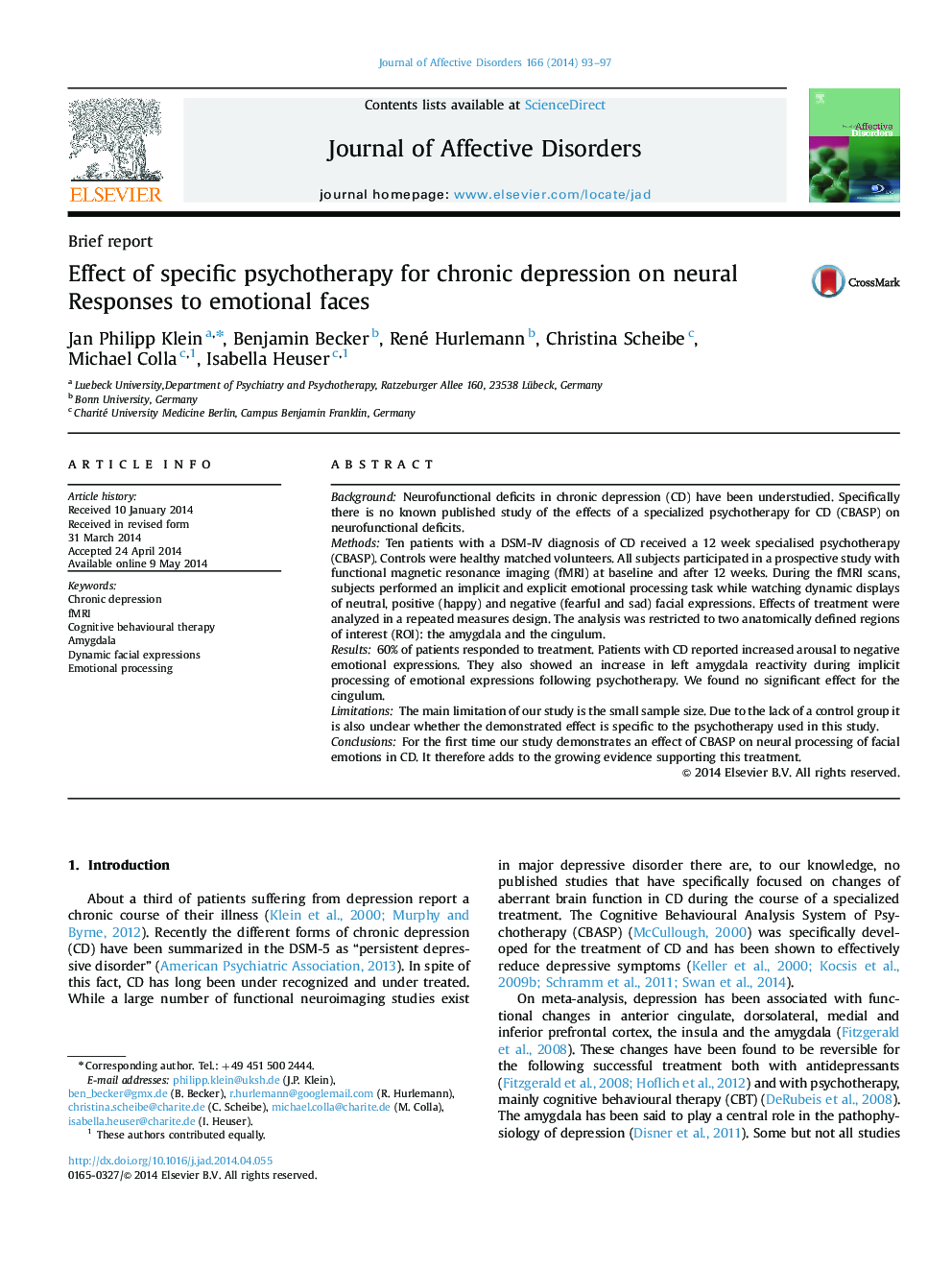| Article ID | Journal | Published Year | Pages | File Type |
|---|---|---|---|---|
| 6232473 | Journal of Affective Disorders | 2014 | 5 Pages |
BackgroundNeurofunctional deficits in chronic depression (CD) have been understudied. Specifically there is no known published study of the effects of a specialized psychotherapy for CD (CBASP) on neurofunctional deficits.MethodsTen patients with a DSM-IV diagnosis of CD received a 12 week specialised psychotherapy (CBASP). Controls were healthy matched volunteers. All subjects participated in a prospective study with functional magnetic resonance imaging (fMRI) at baseline and after 12 weeks. During the fMRI scans, subjects performed an implicit and explicit emotional processing task while watching dynamic displays of neutral, positive (happy) and negative (fearful and sad) facial expressions. Effects of treatment were analyzed in a repeated measures design. The analysis was restricted to two anatomically defined regions of interest (ROI): the amygdala and the cingulum.Results60% of patients responded to treatment. Patients with CD reported increased arousal to negative emotional expressions. They also showed an increase in left amygdala reactivity during implicit processing of emotional expressions following psychotherapy. We found no significant effect for the cingulum.LimitationsThe main limitation of our study is the small sample size. Due to the lack of a control group it is also unclear whether the demonstrated effect is specific to the psychotherapy used in this study.ConclusionsFor the first time our study demonstrates an effect of CBASP on neural processing of facial emotions in CD. It therefore adds to the growing evidence supporting this treatment.
